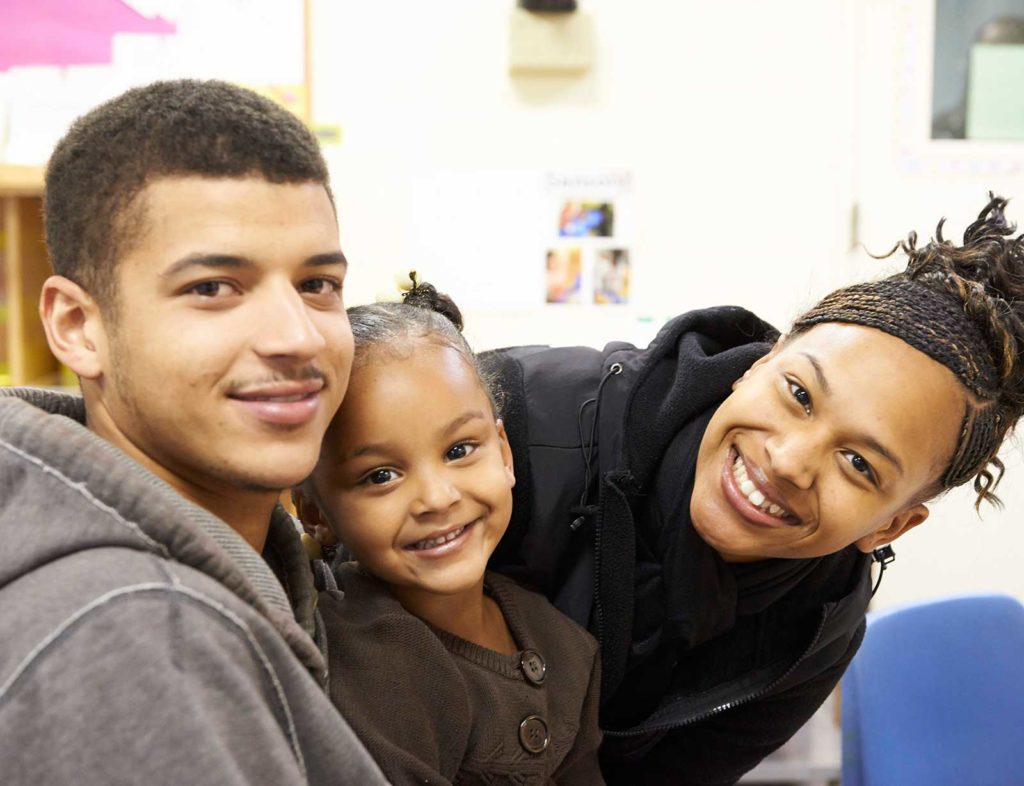The four core coaching skills of Family-Centered Coaching build on each other to create a space to build stronger relationships with participants based on trust and transparency.
Core Coaching Skill 1: Asking Permission
If coaches share their thoughts without asking permission, they may accidentally impose their agenda on the coaching session rather than the participant’s agenda.
The skill of Asking Permission means just that: asking permission to share a skill, a tool, an idea, a hunch, or anything that comes from the coach. This also means respecting when someone says, “No.” By asking permission, coaches let families know that they are in the driver’s seat.
For example, coaches can ask permission by asking:
- Can I share a hunch with you?
- I have a resource that might be helpful; would you like to know about it?
- I have an idea that might help; do you want me to share it?
Core Coaching Skill 2: Listening Reflectively
The skill of Reflective Listening is part of how coaches seek to understand a participant’s vision, values, and purpose–through both their words and nonverbal cues.
It also allows the coach to reflect back what they’ve heard and both make sure they “got it” and express to the participant that they’ve been heard.
Coaches reflect the participant’s feelings, meaning, or content back to them using the same or similar words. But it’s not word-for-word response. It’s a retelling in the coach’s own words.
For example, coaches might ask:
- Feelings: You sound sad about that. Are you?
- Meaning: So what I think you’re saying is that you are worried about taking the job? Do I have that right?
- Content: So you went on the interview and it was a difficult experience for you. Did I get that right?
Core Coaching Skill 3: Asking Powerful Questions
The skill of Asking Powerful Questions helps coaches and participants discover new possibilities, create clarity, and uncover more details about their hopes and dreams.
Short and simple—10 words or less—and open-ended, a powerful question can’t be answered with a yes or no. They are asked in curiosity and with no agenda. These questions always start with what, where, who, why, and when. Be cautious with questions that start with why, however, as they can express judgement.
Coaches can practice asking powerful questions by translating close-ended questions to powerful ones.
| Close-Ended Questions | Powerful Questions |
| Will you arrive on time? | What will help you get there on time? |
| Are we on the right track? | Where are we? |
| Do you have the answer? | What if you did have the answer? |
| Will this turn out well? | How do you think this will turn out for you? |
Core Coaching Skill 4: Holding the Focus
Family-Centered Coaching requires coaches to focus their attention on what the participant wants, not their own idea of what would be best for the participant. People, however, can easily get off track in a coaching conversation for a number of reasons. They might feel nervous about coaching, focusing may be difficult for them, or they might not be used to coaching.
When coaches are listening to unrelated stories that are longer than a few minutes or aren’t related to coaching, they use the skill of Holding the Focus to direct a participant back to their vision, purpose, goal, or commitment.
Instead of assuming families have wandered off track, coaches can ask a powerful question to unearth connections and insights. Sometimes a detour actually ties right in with what they want to accomplish.
For example, a conversation might sound like:
- Coach: I notice we have gotten a little off track. We were talking about completing your resume and now we are talking about your kid’s soccer game. Is there something about that game I should know?
- Participant: Yes, there was another participant at the game that suggested I apply for a job at their company.
The Prosperity Agenda provides these resources as the designated national administrator of Family-Centered Coaching.

